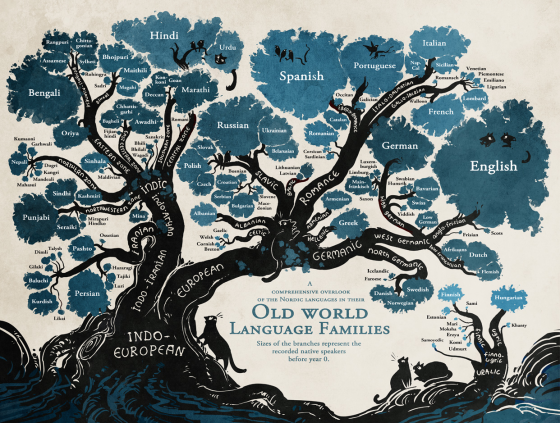
We live in a bizzar age when fantastical dissembling is presented as truth. It is left up to us as people to figure out what is real and what is not. And it is a very hard skill to master.

After four years of dodging COVID, we finally succumbed. It’s a nasty virus and, after two weeks in bed, I’m just starting to be able to write again. I did read a few books while sick, and I wasn’t fond of any of them! I didn’t find the characters interesting, and the storylines were boring, and frankly I didn’t see a point in the narrative. There were too many names and characters all introduced up front and I couldn’t keep track of who was who and why I should care. Given how I felt, I can’t leave reviews — I was in the wrong frame of mind. But it was interesting in retrospect. All readers are different. It’s not only our abilities, it’s our cultural backgrounds, our language skills, our availability to read at times when we are able to process information easily, our time in general. There are readings that are just like candy — fun and delicious. And there are those that are “good for you.” And, of course, there are books and articles that we read for professional advancement. All require different support structures to make the reader’s task easier. Indexes, bibliographies, just-in-time lookups, dictionaries, note taking,…

I was around ten when I had a recurrent dream. Back then, I was good at lucid dreaming — I could make myself dream the same story for weeks on end and remember all of it. It was similar to writing in that it was like watching a story unfold in my imagination. I dreamt many stories this way; although most are lost, there was one that stuck with me about a Neanderthal buried in the permafrost next to the mini merry-go-round in our apartment building’s back yard. We lived in Saint Petersburg, Russia. It was cold and snowy in the winter even if there was no actual permafrost in the courtyard. I must have read something about the marvelous preservation of mammoths, and that gave me the idea. I figured that if those ancient pachyderms could be found in permafrost, so too could early humans. In my dream, I dig under the snow, in the bushes located a few feet from the merry-go-round, and discover a bit of old animal skin. Brushing away a few more layers of snow and dirt, I find what looks like a mummified arm, dressed in clothing made of fur. I know right away…

We all want to go back to normal. We cry about it and complain: “Enough is enough. We want our lives back.” This need to “go back to normal” is always with us, although maybe on a different scale post-pandemic. But even before Covid, there were always things that disturbed our perception of normal: new teachers, new housing, new jobs, new routines, stores and restaurants closing, cars that break down, challenging illnesses, new bus routes. Towards the end of our vacations, we come to realize that, although adventures are fun, it is good to be home where things are as we expect them to be. This want of predictability, for having our expectations met, is at the crux of a deep-seated need for normalcy. We have a limited capacity for taking in and processing information — we have limited short-term memories. When there is a flood of unfamiliar data, we get overwhelmed. We end up not having enough cognitive and emotional capacity to handle the new stuff on top of all the other things we have to do. Sudden change makes life feel overwhelming. Anchoring Errors This brings me to anchoring errors, which are basically little cognitive traps our minds…

I felt devastated by the shootings in Uvalde. How could we have allowed this to happen? The video of the police response was recently released. Hundreds of gunshots can be heard. The police carefully edited out the screams of the children. I can easily imagine my own children’s voices…and I can’t even… The mass shooting during the 4th of July parade in a sleepy Jewish suburb of Chicago was another blow. A close friend grew up there. Her backyard neighbor was one of the killed, and she spent hours trying to learn the fates of her classmates. The little boy who will grow up without parents, for what? What do we get to gain by equipping ourselves with weapons of war? The guns used in these two and most other mass shootings were made to kill people. They are very at it. Why do we need these weapons among civilians living in a peaceful nation? America is very efficient. If it ever came to us needing weapons to defend ourselves from enemies, I’m sure we can distribute them to those who know how to use them — our national guard in no time. Apocalypse is great to watch in the…

The illustration above is created by Minna Sundberg. Unlike pictorial art, music is perceived and processed in time. Complex music — consisting of more than one melody woven together — is even more difficult to process than a single stream. It requires focused attention. It’s more akin to listening to several conversations at once even if they are speaking on the same topic. If attention strays for just a moment, vital data can be lost. Thus music comprehension improves over several listenings. Things like nuance in performance, which ride on top of the basic syntax and message, are easy to miss for novice listeners. Listening, like performing, requires the development of skills. Humans are poor at splitting their attention and multitasking, and thus are prone to missing a lot of details. Language is also much more than a ruled-based string of words. There is a melody to each that varies from language to language. The melody provides the underpinning of emotion to the informational content that words carry. It’s easy to create cognitive dissonance by using the wrong emotional music while delivering a message. People who are good at this are good at manipulation. This is because we listen to…